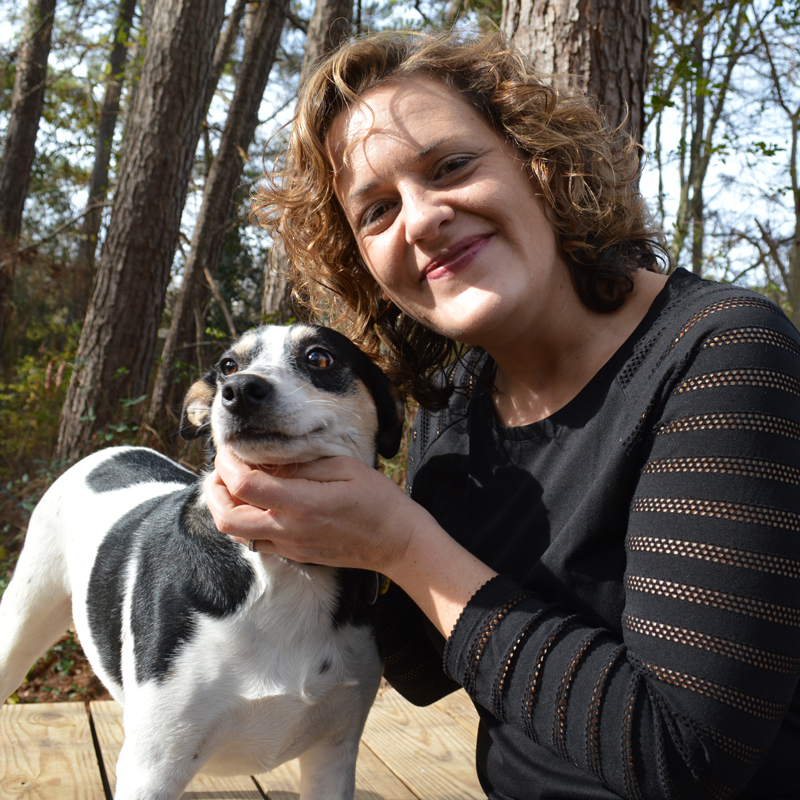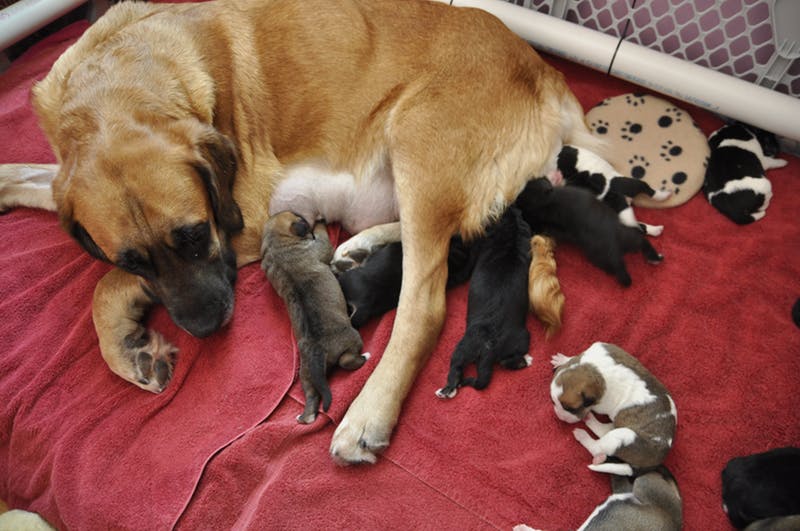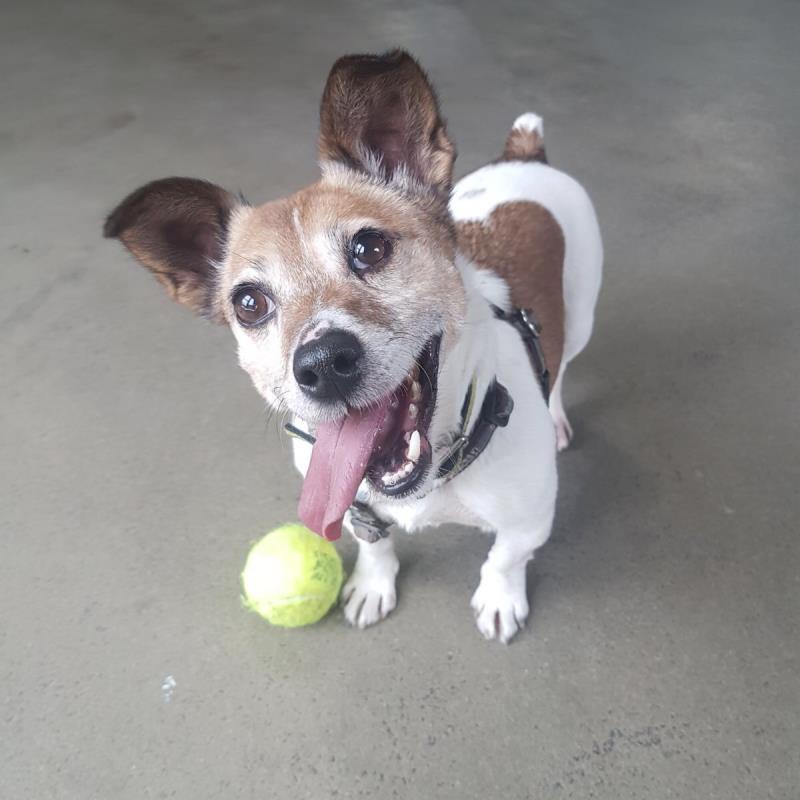Your female dog will live a longer, healthier life. Dog spaying before her first heat reduces your female dog’s chances of uterine infections and breast cancer. Breast cancer is fatal in about 50% of un-spayed female dogs.
She will never go into heat, avoiding having to clean up blood stains on your furniture and carpeting.
Your male dog will also benefit from neutering. If neutering is completed before 6 months of age, you greatly reduce your dog’s risk of testicular cancer and a variety of prostate problems.
Neutering will lessen a male dog’s urge to roam. While some breeds are known for their wandering nature, neutering will lessen that urge and prevent injury from car accidents or fights with other dogs.
Neutering promotes better behavior in male dogs. An intact male dog still has the urge to mount and mark his territory. Once neutered, these desires are greatly reduced, if not eliminated.
Dog spaying/neutering is cost effective. While spaying or neutering can be costly, it is not nearly as expensive as caring for an expectant female and the puppies that later arrive. Many cities and counties also have reduced licensing fees for dogs that are neutered.
Neutering does not make your dog fat. Many people use the excuse that spaying or neutering their dog will make them fat. Too much food and not enough exercise is what make your dog fat. So long as you monitor your dog’s food intake and ensure proper exercise, they should maintain a healthy body weight.
By spaying your female dog you avoid having the neighborhood stray male dogs hanging out around your home while your female is in heat.
Take your dog to the veterinarian for regular check-ups. Be alert to signs of illness in your pet. Any change in behavior or appearance can signal an illness or injury. Know what is normal in urinary and bowel habits so you can spot irregularities. Check your dog’s teeth and ears on a regular basis. Spay or neuter your dog. Dogs who have this routine surgery tend to live longer, be healthier, and have fewer behavior problems (e.g., biting, running away). By spaying or neutering your dog, you are also doing your part to reduce the problem of abandoned dogs.
Give your dog a nutritionally balanced diet, including constant access to fresh water. Ask your veterinarian for advice on what and how often to feed your pet. Dogs should not be fed table scraps. Human food is not appropriate for pets. You should especially avoid raw meats and bones that may splinter and get stuck in her throat.


Sirius Dog Sanctuary is home of stray dogs that have been abandoned in Limassol, Cyprus. The sanctuary is run by a group of volunteers, relying on charitable donations from the public.

Enroll your dog in a training class. Positive training will allow you to control your companion’s behavior safely and humanely, and the experience offers a terrific opportunity to enhance the bond you share with your dog. Interaction with family is also very important to your dog. Give your dog enough exercise to keep him physically fit (but not exhausted). Many find that playing with their canine companion, along with walking him twice a day, provides sufficient exercise. If you have questions about the level of exercise appropriate for your dog, consult your veterinarian.
Purchase a dog brush to give your pet a regular brushing. This not only keeps her coat in good condition, but you can also look for fleas, ticks, mites, and skin problems. Use a dog shampoo for bathing. Don’t forget their teeth. Some chew toys will aid in keeping teeth free of tartar and plaque.
Be loyal and patient with your faithful companion. Make sure the expectations you have of your dog are reasonable and remember that the vast majority of behavior problems can be solved. If you are struggling with your pet’s behavior, contact your veterinarian or local animal shelter for advice.

The top reason to spay or neuter is to avoid unwanted pregnancies and litters.
While it seems that everyone loves puppies, not everyone is willing to take on the responsibility of an unplanned litter.
Our shelters are already overcrowded and by spaying or neutering your dog you reduce the risk of yet another unwanted litter of puppies.

Give your dog proper shelter. The first decision is where to keep your dog. Will this be an indoor or an outdoor dog? A fenced yard with a doghouse is a bonus, especially for large and active dogs; however, dogs should never be left outside alone or for extended periods of time. Dogs need and crave companionship and should spend most of their time inside with their family. An indoor dog should have a designated spot for a bed. Provide a supply of toys and a play area.
Give your dog with a collar and ID tag that includes your name, address, and telephone number. No matter how careful you are, there’s a chance your companion may become lost—an ID tag greatly increases the chance that your pet will be returned home safely. Micro chipping aids in recovery if the dog is lost or kidnapped. Follow local laws for licensing your dog and vaccination. Check with your local animal shelter, municipality or vet for information regarding legal requirements.
Follow this simple rule—off property, on leash. Even a dog with an ID tag should not be allowed to roam outside of your home or fenced yard. It is best for you, your community, and your dog to keep your pet under control at all times.
Becoming a dog owner is a big responsibility. While dog ownership is a rewarding and fun experience, owning a dog takes a commitment. Your dog gives you a lifetime of unconditional love, loyalty, and friendship. In return, she/he counts on you to provide her/him with food, water, safe shelter, regular veterinary care, exercise, companionship, and more.
Take care of these ten essentials.
